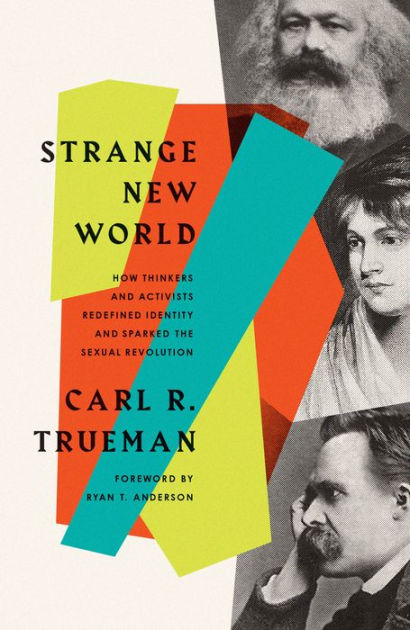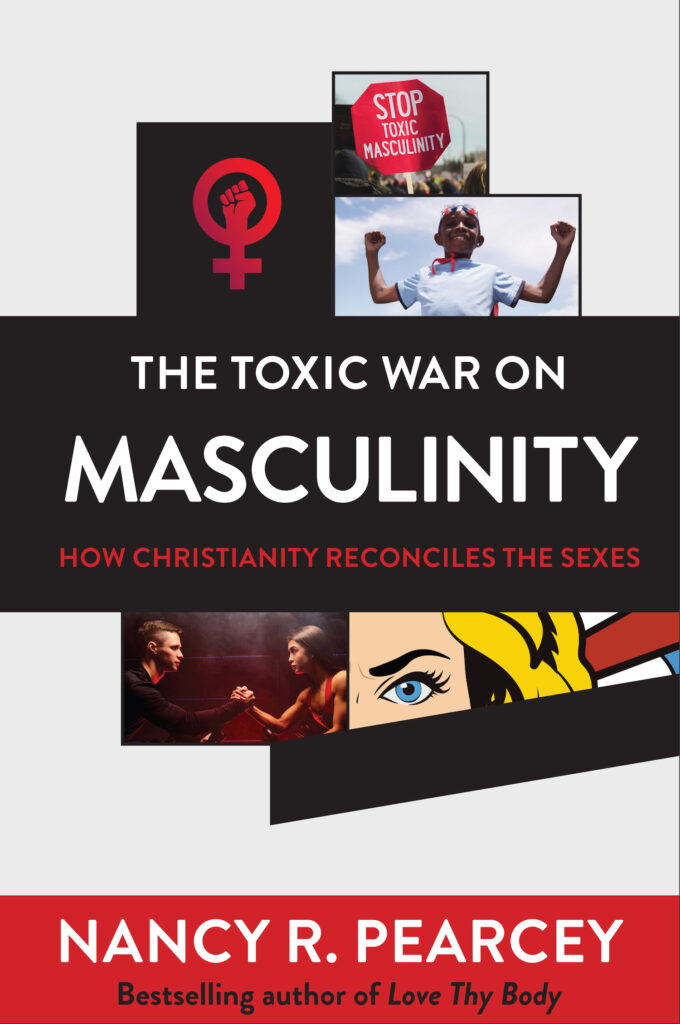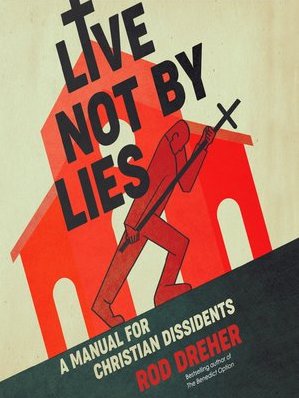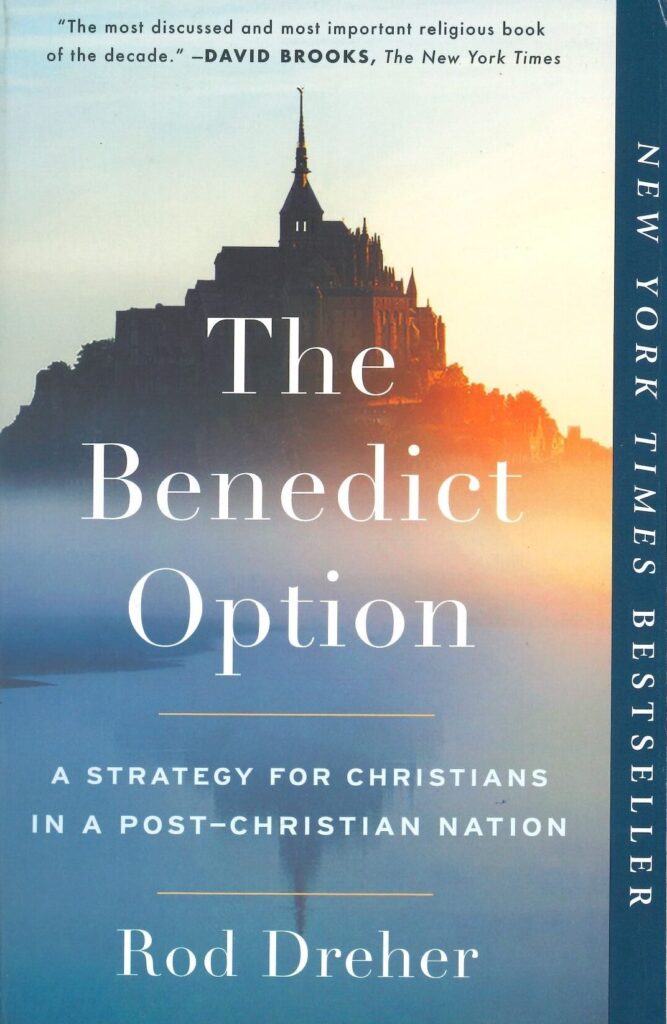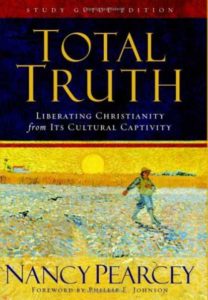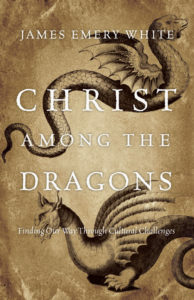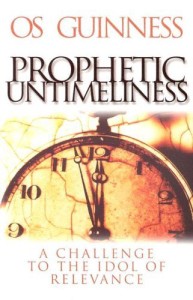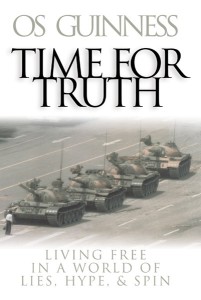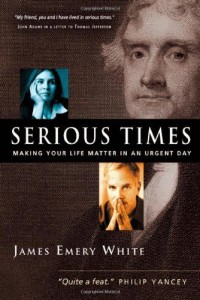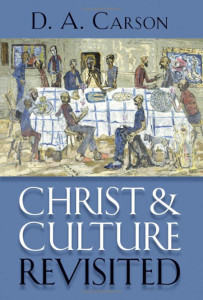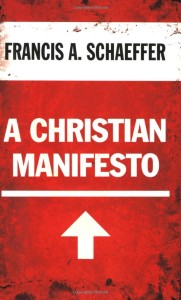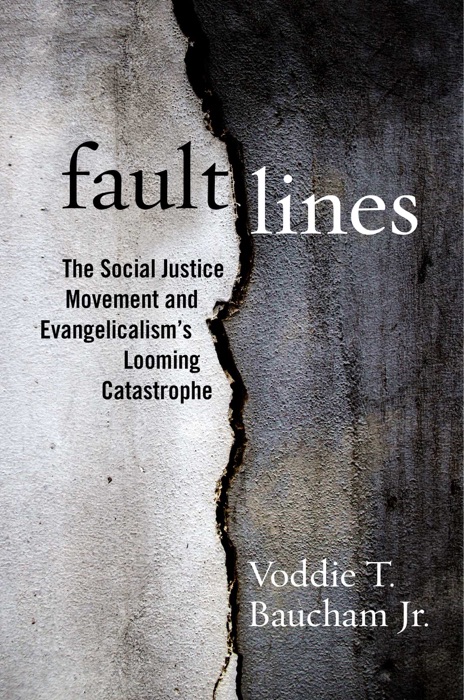Strange New World by Carl R. Trueman
How Thinkers and Activists Redefined Identity and Sparked the Sexual Revolution
From the Publisher:
How did the world arrive at its current, disorienting state of identity politics, and how should the church respond? Historian Carl R. Trueman shows how influences ranging from traditional institutions to technology and pornography moved modern culture toward an era of “expressive individualism.” Investigating philosophies from the Romantics, Nietzsche, Marx, Wilde, Freud, and the New Left, he outlines the history of Western thought to the distinctly sexual direction of present-day identity politics and explains the modern implications of these ideas on religion, free speech, and personal identity.
For fans of Trueman’s The Rise and Triumph of the Modern Self, Strange New World offers a more concise presentation and application of some of the most critical topics of our day. Individuals and groups can work through the book together with the Strange New World Study Guide and Strange New World Video Study, sold separately.
- Cultural Analysis from a Christian Perspective: Explores the history of the sexual revolution and its influence today
- A Concise Version of The Rise and Triumph of the Modern Self: Offers an approachable presentation of the points in Trueman’s popular book
- A Great Resource for Individual and Small-Group Study: Each chapter ends with thought-provoking application questions
- Part of the Strange New World Suite: Can be used with the Strange New World Video Study and Strange New World Study Guide
The Journey 60-Second Review: American culture is at war. Not so much within itself and contemporary issues, but with the historic foundations upon which this nation and culture were built. Sadly, however, the church in America is focused on the symptoms of this warfare and unaware of its root causes and outworkings: we are focused on the blemishes that mark the American skin, giving little to no attention to the cancers at work within. This is true because the church, and pastors in particular, have been obsessed with and misdirected by media, reacting to the latest viral posts rather than obeying our Lord’s commands to teach the faith once for all delivered to the saints, including basic Christian worldview. Recent studies show that only 9% of all Americans who identify as Christian have a Christian worldview; a full 91% have blindly accepted a view of the world that is not in line with reality, not Christian. Case in point: gender identity and the sexual revolution. How has it come to this? What happened? In Strange New World, Carl R. Trueman explores the historic roots of these false ideas and worldview, drawing them together into an easily understandable presentation. Not only will SNW help the reader understand the roots of this modern sexual revolution and identify its present day marks, but come to grips with what the Church can and must do to call itself and this culture back to truth and reality. A must read for every pastor who wants to serve believers who, unknowingly, are facing these unreal challenges every day in education, media, government, and among their family and friends.
The Toxic War on Masculinity by Nancy R. Pearcey
How Christianity Reconciles the Sexes
From the Publisher:
“Why Can’t We Hate Men?” asks a headline in the Washington Post. A trendy hashtag is #KillAllMen. Books are sold titled I Hate Men, No Good Men, and Are Men Necessary?
How did an ideology arise that condemns masculinity as dangerous and destructive?
Bestselling author Nancy Pearcey has a knack for tackling the tough issues of our day. A former agnostic, Pearcey was hailed in The Economist as “America’s pre-eminent evangelical Protestant female intellectual.” In this book, she takes readers on a fascinating romp through American history to discover how the secular script for masculinity turned toxic–and what action we can take to fix it.
We often hear that Exhibit A of toxic behavior is evangelical Christian men. But the social sciences tell a very different story. Studies find that family men who attend church regularly test out as the most loving husbands and the most engaged fathers. They have the lowest rate of divorce and–here’s the real stunner–the lowest rate of domestic violence of any group in America.
The sociological facts explode anti-male stereotypes and show that classic Christianity has the power to overcome toxic behavior and reconcile the sexes. That’s a finding that has stood up to rigorous empirical testing.
This book will equip thinkers and activists to challenge politically correct ideology and bring an evidence-based message of healing into the public square.
The Journey 60-Second Review: Pearcey gives us a remarkably researched and readable deep-dive into masculinity – the cultural stereotypes and the biblical truth. If you’re a man, get ready to take this critique like a man even as you receive its overwhelming affirmations of men and our God-given role. I felt personally challenged all the way through the book, but in much the same way a football coach calls out the best in his players by calling for more and better. Pearcey takes on the headline-deep cheap shots against men and masculinity and shatters them, showing how healthy masculinity, especially among but not limited to Christians is a powerful force in the lives of our families, friends, and workplaces, one that must be unleashed, even as the potential weaknesses and failings of men must be honestly faced. Once again, Nancy Pearcey delivers thoughtful excellence. Read anything she has written.
LIVE NOT BY LIES – ROD DREHER
A MANUAL FOR CHRISTIAN DISSIDENTS
From the Publisher: For years, émigrés from the former Soviet bloc have been telling Rod Dreher they see telltale signs of “soft” totalitarianism cropping up in America–something more Brave New World than Nineteen Eighty-Four. Identity politics are beginning to encroach on every aspect of life. Civil liberties are increasingly seen as a threat to “safety”. Progressives marginalize conservative, traditional Christians, and other dissenters. Technology and consumerism hasten the possibility of a corporate surveillance state. And the pandemic, having put millions out of work, leaves our country especially vulnerable to demagogic manipulation.
In Live Not By Lies, Dreher amplifies the alarm sounded by the brave men and women who fought totalitarianism. He explains how the totalitarianism facing us today is based less on overt violence and more on psychological manipulation. He tells the stories of modern-day dissidents–clergy, laity, martyrs, and confessors from the Soviet Union and the captive nations of Europe–who offer practical advice for how to identify and resist totalitarianism in our time. Following the model offered by a prophetic World War II-era pastor who prepared believers in his Eastern European to endure the coming of communism, Live Not By Lies teaches American Christians a method for resistance:
• SEE: Acknowledge the reality of the situation.
• JUDGE: Assess reality in the light of what we as Christians know to be true.
• ACT: Take action to protect truth.
Aleksandr Solzhenitsyn famously said that one of the biggest mistakes people make is assuming totalitarianism can’t happen in their country. Many American Christians are making that mistake today, sleepwalking through the erosion of our freedoms. Live Not By Lies will wake them and equip them for the long resistance.
The Journey 60-Second Review: One of the marks of American culture is its abandonment of wisdom to immerse ourselves in information. Not even knowledge, but information. The Book of Proverbs admonishes us to gain wisdom at any cost, but we can’t turn off the social media long enough to consider what the wisdom of the ages has to teach us. Saddest of all, this anti-value seems to hold much of the church in its hypnotic and numbing grip. But wisdom will not be denied. Its lessons are not tied to followers or likes, but to the test of time – and trial. In Live Not By Lies, Rod Dreher does a deep dive into the wisdom of Christ’s church under oppression, the church that endured decades of persecution under Communism. The voices of the survivors speak of loss, but more of gain – who God truly is and who we truly are in Christ. Their voices are those that 21st Century Christians in the West must listen to as move more and more into not only a post-Christian age, but anti-Christian one. Dreher not only gives us their wisdom, but a plan of action for remaining strong as believers and as communities of faith across our nations.
THE BENEDICT OPTION – ROD DREHER
A STRATEGY FOR CHRISTIANS IN A POST-CHRISTIAN NATION
From the Publisher:
In this controversial bestseller, Rod Dreher calls on American Christians to prepare for the coming Dark Age by embracing an ancient Christian way of life.
From the inside, American churches have been hollowed out by the departure of young people and by an insipid pseudo–Christianity. From the outside, they are beset by challenges to religious liberty in a rapidly secularizing culture. Keeping Hillary Clinton out of the White House may have bought a brief reprieve from the state’s assault, but it will not stop the West’s slide into decadence and dissolution.
Rod Dreher argues that the way forward is actually the way back—all the way to St. Benedict of Nursia. This sixth-century monk, horrified by the moral chaos following Rome’s fall, retreated to the forest and created a new way of life for Christians. He built enduring communities based on principles of order, hospitality, stability, and prayer. His spiritual centers of hope were strongholds of light throughout the Dark Ages, and saved not just Christianity but Western civilization.
Today, a new form of barbarism reigns. Many believers are blind to it, and their churches are too weak to resist. Politics offers little help in this spiritual crisis. What is needed is the Benedict Option, a strategy that draws on the authority of Scripture and the wisdom of the ancient church. The goal: to embrace exile from mainstream culture and construct a resilient counterculture.
The Benedict Option is both manifesto and rallying cry for Christians who, if they are not to be conquered, must learn how to fight on culture war battlefields like none the West has seen for fifteen hundred years. It’s for all mere Christians—Protestant, Catholic, Orthodox—who can read the signs of the times. Neither false optimism nor fatalistic despair will do. Only faith, hope, and love, embodied in a renewed church, can sustain believers in the dark age that has overtaken us. These are the days for building strong arks for the long journey across a sea of night.
The Journey 60-Second Review: A must-read. While the American church plays church, the American culture is not turning away from the church but turning on it. Government, education, entertainment, Big Tech, media, and science are openly attacking historic Christianity and reality. Numbers are down in the church, but this isn’t the real problem. The real problem, as study after study demonstrates, is that doctrine and discipleship are down in the church: fewer and fewer church attenders hold to historic cardinal doctrines; more and more church attenders are accepting the values-free doctrines propagated by culture. What are faithful churches to do in light of this? Dreher lays out a clear path, one already demonstrated by history to be not only workable but powerfully effective. You won’t hear this book preached or taught in your local Christian-lite event center. But in time, you won’t be able to ignore its message. Again, a must-read.
TOTAL TRUTH – NANCY PEARCEY
LIBERATING CHRISTIANITY FROM ITS CULTURAL CAPTIVITY
From the Publisher:
How can you liberate Christianity from its cultural captivity? In this superbly crafted cultural analysis, noted author Nancy Pearcey passionately argues that Christianity is truth about all reality, not just religious truth, and that to keep it privatized is stripping it of the power to challenge and redeem the whole of culture.
Is God a public figure? Does Christianity have a legitimate role to play in the public realm of politics, business, law, and education? Or are secularists right when they relegate religion to the strictly private realm of faith and feelings?
In Total Truth, Nancy Pearcey offers a razor-sharp analysis of the split between public and private, fact and feelings. She reveals the strategies of secularist gatekeepers who use this division to banish biblical principles from the cultural mainstream, stripping Christianity of its power to challenge and redeem the whole of culture.
How can we overcome this divide? Unify our fragmented lives? Recover authentic spirituality? With compelling examples from the struggles of real people, Pearcey shows how to liberate Christianity from its cultural captivity. She walks readers through practical, hands-on steps for developing a full-orbed Christian worldview. Finally, she makes a passionate case that Christianity is not just religious truth but truth about total reality. It is total truth.
The Journey 60-Second Review: With Total Truth, Nancy Pearcey informs the church of an incredible opportunity for evangelism and then gives us a workable tool for seizing that opportunity. She takes on the daunting task of tracking the development of Western philosophy and worldview from its origins to today and she does it in a form that is extremely informative and readable for those with working knowledge of Scripture. She then demonstrates how these philosophies affect every area of American life, from education and politics to morality and even religion. Refusing to accept the presumption that “God is not in the details” of these cultural areas, she gives Christians a virtual workbook for apologetics and evangelism, i.e., how only a Christian worldview is truly reasonable and livable in daily life. A tremendous read by a tremendous scholar and writer.
CHRIST AMONG THE DRAGONS – JAMES EMERY WHITE
FINDING OUR WAY THROUGH CULTURAL CHALLENGES
From the Publisher: “Here Be Dragons” When medieval mapmakers came to the end of the world as they knew it, they would write on the edges of their maps, “Here Be Dragons.” Without a way to navigate, these areas were, at best, promising yet unexplored, and at worst, perilous.
At the beginning of the twenty-first century, evangelical Christians have an equally unsettling map and a lack of unity in regard to how we will find our way through uncharted territory as we stray from core ideas and differ on key issues.
How did we get here? How will we find our way back? In this book James Emery White takes us on a journey beyond the dragon territory to discover the new world Christ is mapping for us.
The Journey 60-Second Review: James Emery White addresses what Christians must do to bring the truth to bear upon the serious time in which we live. White argues that this journey begins not with the church confronting the world, but with the church confronting itself. What once united us, now divides us, the author states. What is needed is not a new focus on our culture, but a new focus and attention to four arenas that should define and unite us in our mission in the world: the nature of truth and orthodoxy, cultural engagement and the evangelistic enterprise, Christian community and civility, and the identity and character of the church. As we come together around the historically common fire of these four issues, the church will not only once again be one, but it will be one in its approach to its mission in the world. These four issues form the outline of White’s diagnosis of and prescription for the church’s fractured stance in the world today. With regard to truth, White notes cultures transition from truth to “truthiness,” “truthiness” being that which has been, for the moment, voted to be true by a majority of people – but those who are uncomfortable with this statement of truthiness need not fear, for the next poll can easily vote the old truthiness out and the new truthiness in. And just so, like a dog chewing on its own hind leg, society begins to consume itself with its inability to distinguish the true from the false, the absolute from the relative, the healthy from the unhealthy, the free from the enslaved. In the end, it is left without a left to stand on, and worse, it slowly bleeds to death. With regard to culture, White imagines a world without the truth, goodness and beauty that is in the nature and, hopefully, actions of the church. He then shines the light of truth in the eyes of the church asking how much we have to hate the people of our cultures not to share the truth of the Gospel with them? Ouch! With regard to unity, the author notes how social media’s “rules of the road” have invaded the church: road rage, cutting people off, driving offensively are no longer apparent on the streets that lead to church, but are, too often, apparent in the souls that fill the church. It has led to a diffusion of our missional energy and a displacement of our mission itself. Finally, with regard to the church, White laments the reduction of the local church to a personal health club that one joins as one will, attends as one will, and contributes as one will not. The clear teaching of the New Testament on the vital nature and role of the church has been reduced to just another blog post for our consideration. White ends with an invitation: Let all who name Jesus as Lord, come back to truth, come back to a biblical understanding of the world around us, come home to the church, and come back to the character of the One who so loved us that He not only died for our sins, but He stopped along the way to wash our feet, sinners that we were.
PROPHETIC UNTIMELINESS – OS GUINNESS
From the Publisher:
The buzz among evangelicals today is about relevance and reinvention, about new ways of ”doing church” through revising, innovating, borrowing, mixing, and experimenting.
Yet, says Os Guinness, in our uncritical pursuit of relevance, Christians have actually become irrelevant. By our determined efforts to redefine ourselves in ways that are more in line with the modern world than are faithful to Christ, we have lost not only our identity but our authority and significance.
Prophetic Untimeliness addresses this issue by giving practical, constructive solutions for living with integrity in the midst of modern pressures. Guinness explores what it means to be both faithful and relevant, and how to be truly relevant without being trivial or trendy. Readers will be challenged to develop ”resistance thinking,” an approach inspired by C. S. Lewis that balances the uncomfortable truths of the gospel with the pursuit of relevance. Only by being true to Christ and living with integrity and wisdom will we meet the needs of a world that is hungry for some really good news.
JPC 60-Second Review: One of the most important books I have read, and read several times. The Publisher’s notes above sum up the book nicely, so there’s no need for a lengthy review. Guinness writes, “A great part of the evangelical community has transferred authority from Sola Scriptura to Sola Cultura.” That should start some debate among church leaders (but, hopefully, less among pastors). How on earth have we Christians become so irrelevant when we have tried so hard to be relevant? Our relevance to culture has made us irrelevant to those living in the culture. More seriously, it has made our message and Message irrelevant and unimportant, a recipe for the eternal judgement of millions. Before considering how to relevant to our culture, Guinness asks us to redeem our opportunity to redeem the people who live in present day Western culture. To do this, he writes, we must redeem the time: rather than being of our time, we must be untimely (transcendent); rather than mindlessly adopting every new idea and technique coming down the cultural cut-de-sac, we must seek the wisdom of the ages; and finally, rather than running ourselves ragged in frenzied activity (even religious activity), we must live paused before the Eternal One and Maker of Time – in Him, living, moving and having our being. One of my top five books of all time.
TIME FOR TRUTH – OS GUINNESS
From the Publisher: In postmodern society, truth no longer exists in any objective or absolute sense. At best, truth is considered relative. At worst, it’s a matter of human convention.
But, as Os Guinness points out in this book, truth is a vital requirement for freedom and a good life.
Time for Truth urges readers to seek the truth, speak the truth, and live the truth. Guinness shows that becoming free and truthful people is the deepest secret of integrity and the highest form of taking responsibility for ourselves and our lives.
JPC 60-Second Review: An essential read for anyone who is serious about his or her discipleship – following Christ and making Christ known. From the book: “‘The truth shall set you free” may be the most popular university motto across the Western world, but while the text still adorns the walls, the truth no longer animates the minds.” Guinness writes that truth has is now regarded by Western culture as a social construct, merely a statement made to cause a certain effect. In a word, truth lies bleeding in the streets as power struts as the new basis of culture and its mores. Arguing for absolute truth absolutely, and as essential to human freedom, Guinness defends the truth against this new construct. Where many take on this task with verbiage, verbiage, verbiage, the author is both complete and concise: complete enough to make his case and concise enough to make the reader want to explore and know more on the subject – rare in a writer. Guinness speaks truth to power in a series of three couplets: the impact of the crisis of truth on ethics and character; the impact of the crisis of truth on the world and national stage, and what this means to Western Civilization; two strategies for responding to those who are unconcerned about the crisis of truth (a great chapter!); two strategies for responding to those who reject truth (another great apologetics tool); and finally, two touch choices that truth presents each of us we endeavor to live out the truth. I don’t know if there is a living author who is more adept at succinctly and fully making his points and his case. In TFT, Guinness does it again: his indictment against the West’s abuse of truth, his description of the consequences of such abuse and our inaction to correct this abuse, and his solutions are complete and concise – a full primer on truth in just 125 spell-binding pages. A must-read.
SERIOUS TIMES – JAMES EMERY WHITE
From the Publisher:
A 2005 Evangelical Christian Publishing Association Gold Medallion finalist. How can we make our lives matter?
John Adams and Thomas Jefferson lived in serious times. And, because they chose to live serious lives, they turned the course of history. As the modern era transitions into postmodern turbulence, we, too, find ourselves in serious times.
How can we make a difference in the world around us? How can we be an influence for Christ? Most important, how can we make our lives matter? There is a a great movement of God set loose in the world.
In this book, James Emery White explores what it means to be at the front lines of what God is doing. When serious times are met with serious lives, the kingdom of God is advanced. Come and discover a life of significance.
JPC 60-Second Review: James Emery White addresses not so much the culture in which we live as he does the serious times in which we find ourselves, given this present culture. White advocates that, though the times they are a changing, our message must not change, and though the times are ever more serious, our mission must not be aborted for life within the Christian conclave – through our God and through the tools He has given us, we can answer these serious times with five effective responses: by following the great cloud of witnesses who met their serious times and won (Wilberforce, Bonhoeffer, and Patrick of Ireland); by deepening our souls (St. Benedict); by developing our minds (C.S. Lewis); answering God’s call (Mother Theresa), and aligning with the church (Martin Luther). In each of these five responses, White does not fall to the common error of many ministry books and blogs, i.e., reducing difficult subjects to to-do lists (“3 Keys to Effective Leadership,” “7 Steps to Revitalizing Your Community,” etc), but uses the lives of these individuals as illustrations of the solid, line-upon-line instruction we need for effectively seizing the hour in which we live. This is a book that does not lament the fact of these serious times; it is a book that targets these serious times as an opportunity to advance the Gospel of others who live in these serious times without serious answers. Highly, highly recommended.
CHRIST & CULTURE REVISITED – D.A. CARSON
From the Publisher:
Called to live in the world, but not to be of it, Christians must maintain a balancing act that becomes more precarious the further our culture departs from its Judeo-Christian roots. How should members of the church interact with such a culture, especially as deeply enmeshed as most of us have become?
In this award-winning book D. A. Carson applies his masterful touch to that problem. After exploring the classic typology of H. Richard Niebuhr with its five Christ-culture options, Carson offers an even more comprehensive paradigm for informing the Christian worldview. More than just theoretical, Christ and Culture Revisited is a practical guide for helping Christians untangle current messy debates about living in the world.
JPC 60-Second Review: This classic is sure to strike and stroke your opinions on how the Gospel and culture are related to each other. I’ll not spoil the read, except to say prepare to be challenged, not only with Carson’s conclusions, but his demand that you actually think about this question instead of simply agreeing with your favorite TV preacher or blogger. This is meat. Are you mature enough to digest it?
A CHRISTIAN MANIFESTO – FRANCIS A SCHAEFFER
From the Publisher:
In this explosive book, Francis Schaeffer shows why morality and freedom have crumbled in our society. He calls for a massive movement-in government, law, and all of life-to reestablish our Judeo-Christian foundation and turn the tide of moral decadence and loss of freedom.
A Christian Manifesto is literally a call for Christians to change the course of history-by returning to biblical Truth and by allowing Christ to be Lord in all of life.
JPC 60-Second Review: A manifesto is a written statement declaring publicly the values, motives, and intentions of a person or individual. It is a call to action based on worldview: because reality is this, we must live and act in this way. Schaeffer, as is his mark, lays out the foundations, walls, and roof of a Christian worldview and subsequent call to action. His statements are based not on personal opinion, but on reality. His conclusions are then simply the outgrowth of those observations of reality. In an age when the Church offers a designer Jesus and faith to itself and the world, Schaeffer says no: there is One God, one Faith, and this then is how we must live in this world. No legalism; no robotic goose-stepping here. In fact, quite the opposite: as Christians serve the One God in the One Faith He has given, their individuality and creativity will be at their most expressive for they will be the fruit of a life lived in relationship with the One God who is Trinity – Father, Son and Spirit. A powerful read.
FAULT LINES – VODDIE BAUCHAM
From the Publisher:
The Ground Is Moving
The death of George Floyd at the hands of police in the summer of 2020 shocked the nation. As riots rocked American cities, Christians affirmed from the pulpit and in social media that “black lives matter” and that racial justice “is a gospel issue.”
But what if there is more to the social justice movement than those Christians understand? Even worse: What if they’ve been duped into preaching ideas that actually oppose the Kingdom of God?
In this powerful book, Voddie Baucham, a preacher, professor, and cultural apologist, explains the sinister worldview behind the social justice movement and Critical Race Theory—revealing how it already has infiltrated some seminaries, leading to internal denominational conflict, canceled careers, and lost livelihoods. Like a fault line, it threatens American culture in general—and the evangelical church in particular.Whether you’re a layperson who has woken up in a strange new world and wonders how to engage sensitively and effectively in the conversation on race or a pastor who is grappling with a polarized congregation, this book offers the clarity and understanding to either hold your ground or reclaim
JPC 60-SECOND REVIEW: Baucham does not draw a line in the sand, but points out that line. More, he says it is more than a line in the sand; it is a line in the rock of the culture and church, a line that threatens to divide the church along cultural lines. In Fault Lines gives a concise but sufficiently complete description of Critical Race Theory, its parents (unknown by most Americans), its philosophical origins (again, unknown by most Americans), and its DNA – what it is, without all the spin for or against. He lays out its calls to faith and action as a new, yet old, religion. Read Delgado and then read Bacham for his response.
Recent Tweets
JPC Instagram
© [2015] — Journey Pastoral Coaching


